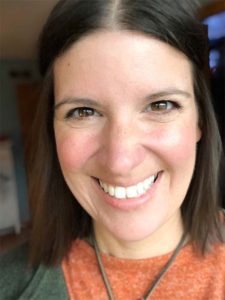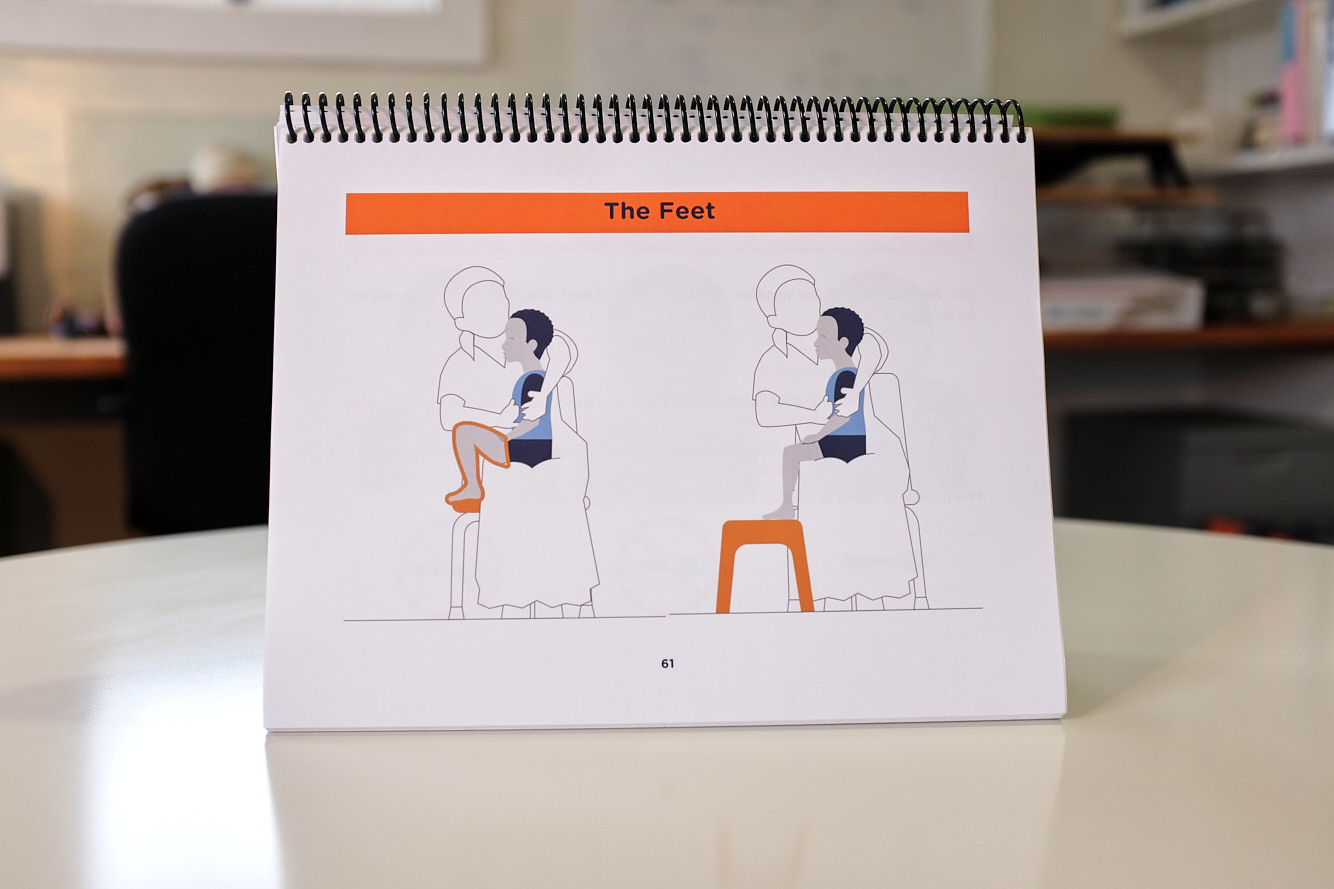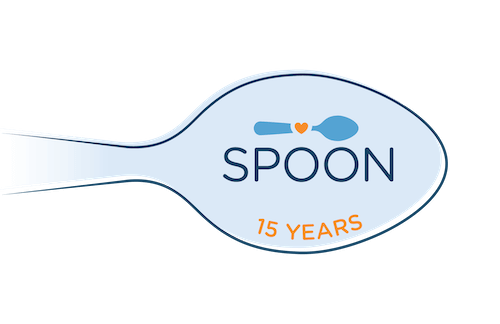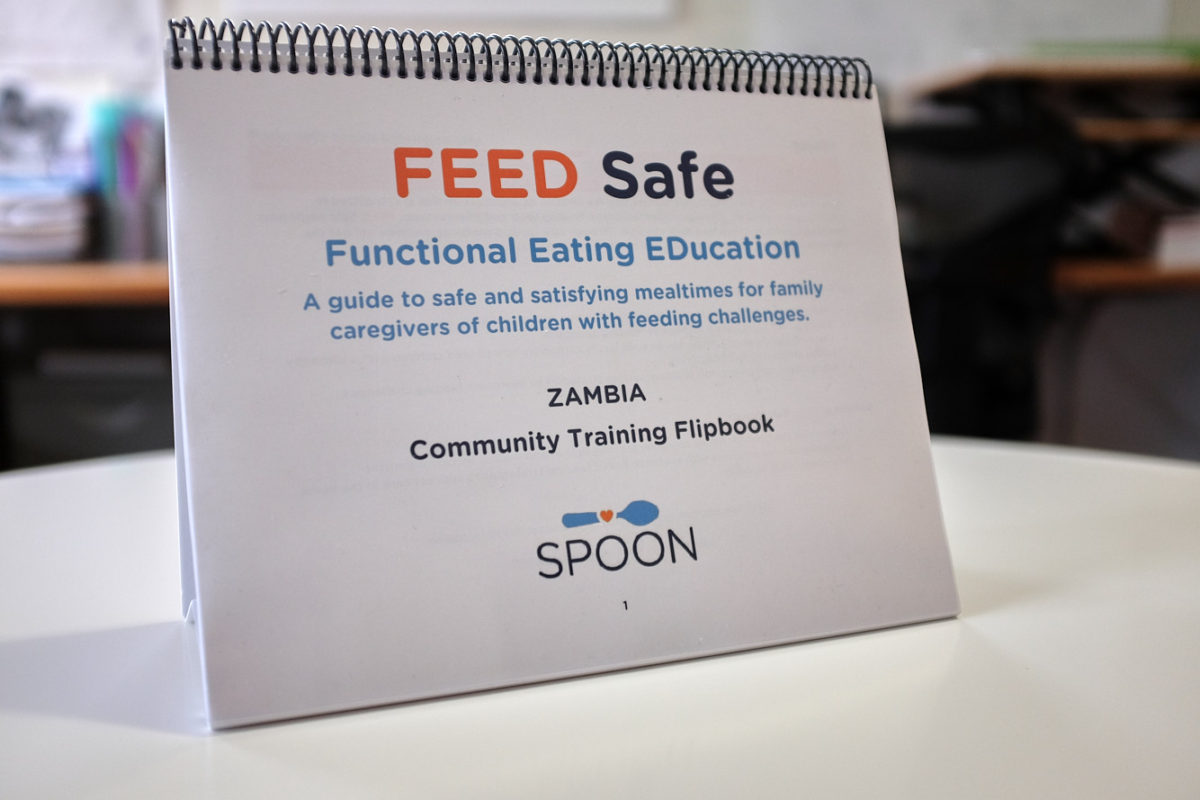In 2021, SPOON mentored Kate Fairchild as she completed a capstone project for her Doctorate in Occupational Therapy from Saint Catherine University. Through this project, she developed FEED Safe, a flipbook and accompanying training program designed to walk caregivers through safe and effective practices for feeding children with disabilities. The FEED Safe pilot complements SPOON’s overall program in Zambia, which includes our remote training courses and our digital health app, Count Me In. Read on to learn more about this initiative, its pilot in Zambia, and its potential impact from Kate in her own words.
 At the first spark of life, a child is nourished by their mother in the womb and from that point on a beautiful dance begins. As a child displays hunger cues, their attentive caregiver glides in and provides food for the child. In turn, the child willingly receives nourishment and offers a moment of peace, joy, and attachment to their caregiver.
At the first spark of life, a child is nourished by their mother in the womb and from that point on a beautiful dance begins. As a child displays hunger cues, their attentive caregiver glides in and provides food for the child. In turn, the child willingly receives nourishment and offers a moment of peace, joy, and attachment to their caregiver.
For a child with a disability, the dance of nourishment is often disrupted by awkward movements, poor timing, and lack of energy to perform the essential task of eating. When inefficient or unsafe feeding practices are used, a child with a disability may respond with frustration and fear, and may even succumb to illness. Children with physical disabilities, such as cerebral palsy, are at higher risk for undernourishment, malnourishment, and infections.
Around the globe, family caregivers face many challenges when feeding children with disabilities. Families living in countries with advanced healthcare technologies may benefit from education, specialized seating, alternative feeding methods such as tube feeding, and specially formulated foods that ensure proper nutrition. Unfortunately, families in low-income countries often lack access to such resources. SPOON and its partners in Zambia recognized the need to train family caregivers in safe and efficient feeding practices to promote positive developmental outcomes for children with disabilities.
In 2021, I partnered with SPOON and Catholic Medical Mission Board (CMMB) Zambia to develop FEED Safe, a community-based training program for family caregivers in Zambia. The core of the FEED Safe program is a flipbook that professionals such as community health workers and therapists can use to teach caregivers safe, evidence-based techniques for feeding children with disabilities. We have also developed an accompanying training program and handouts to equip community trainers to use the flipbook. FEED Safe was designed to be culturally relevant and can be used sustainably by taking advantage of everyday, household materials when adapting to children’s needs. Moreover, FEED Safe provides a mechanism for family caregivers to share their knowledge with one another and creates an opportunity to build a community support network.
Partners in Zambia are currently piloting FEED Safe and preliminary feedback has been positive. We hope that FEED Safe can be a tool that improves developmental outcomes for children while promoting positive connections between caregivers and children.

A page from the FEED Safe flipbook


